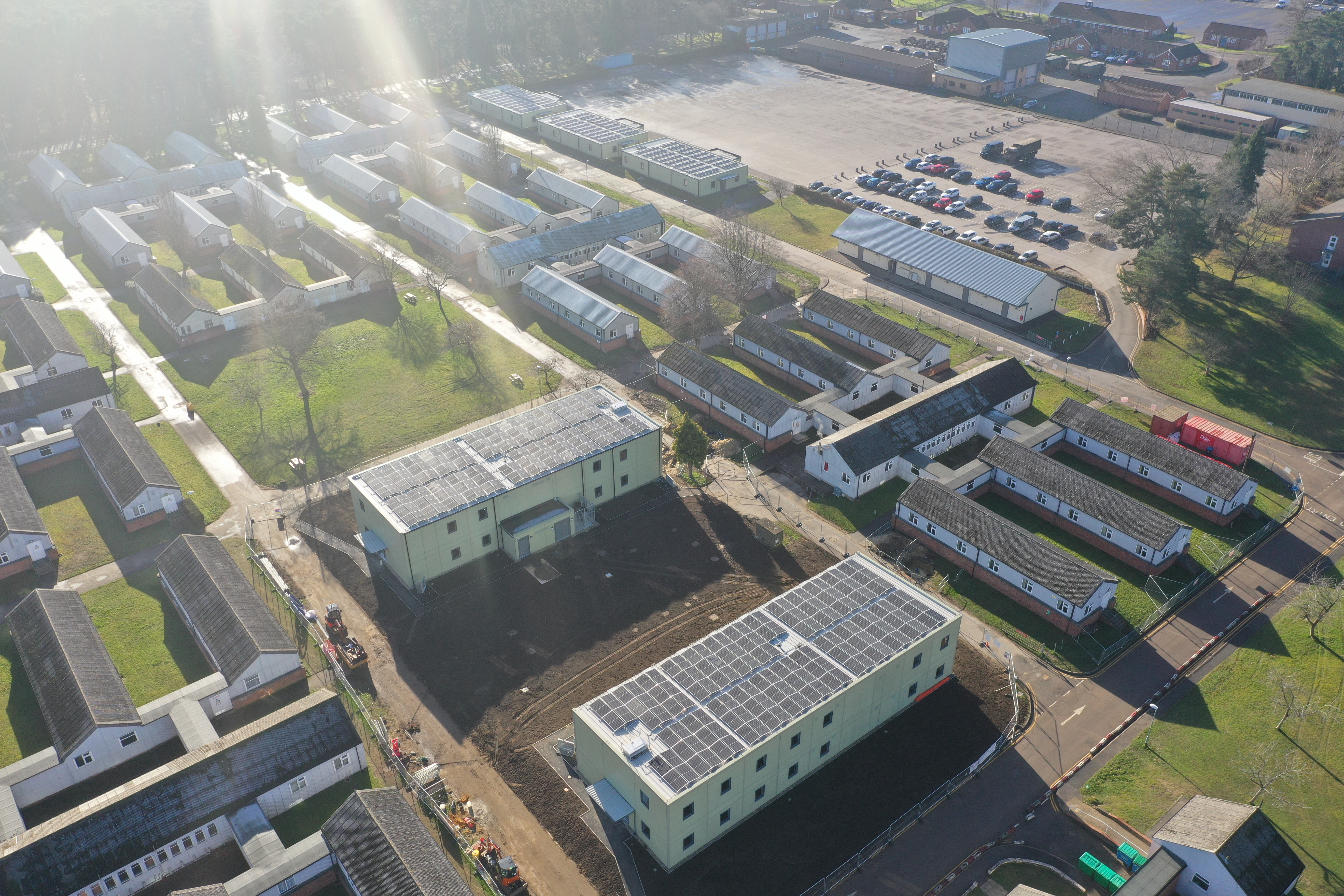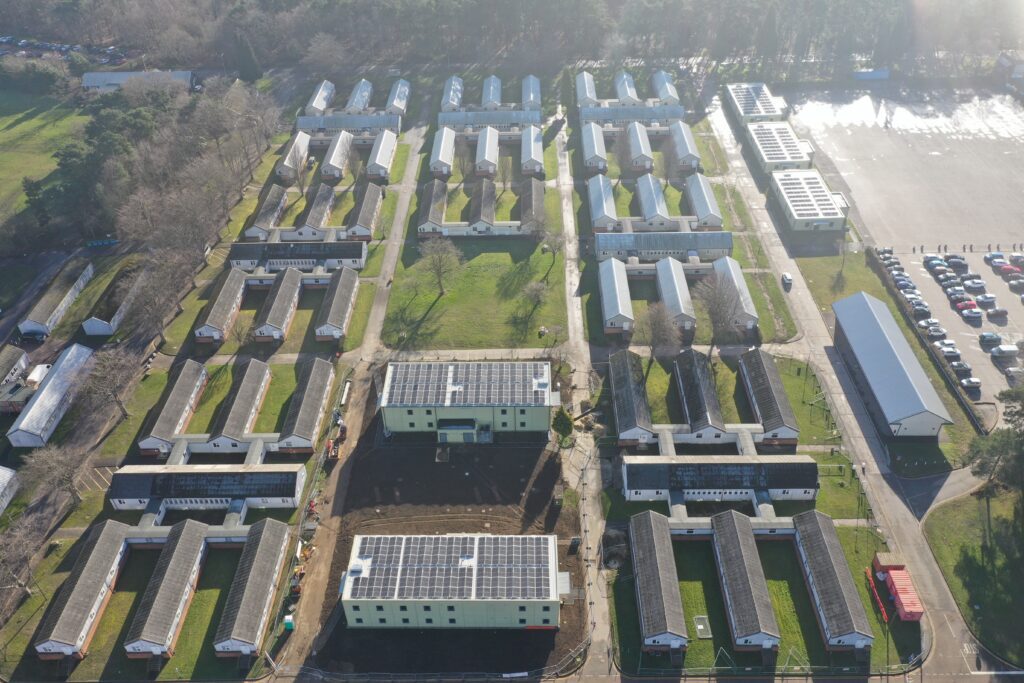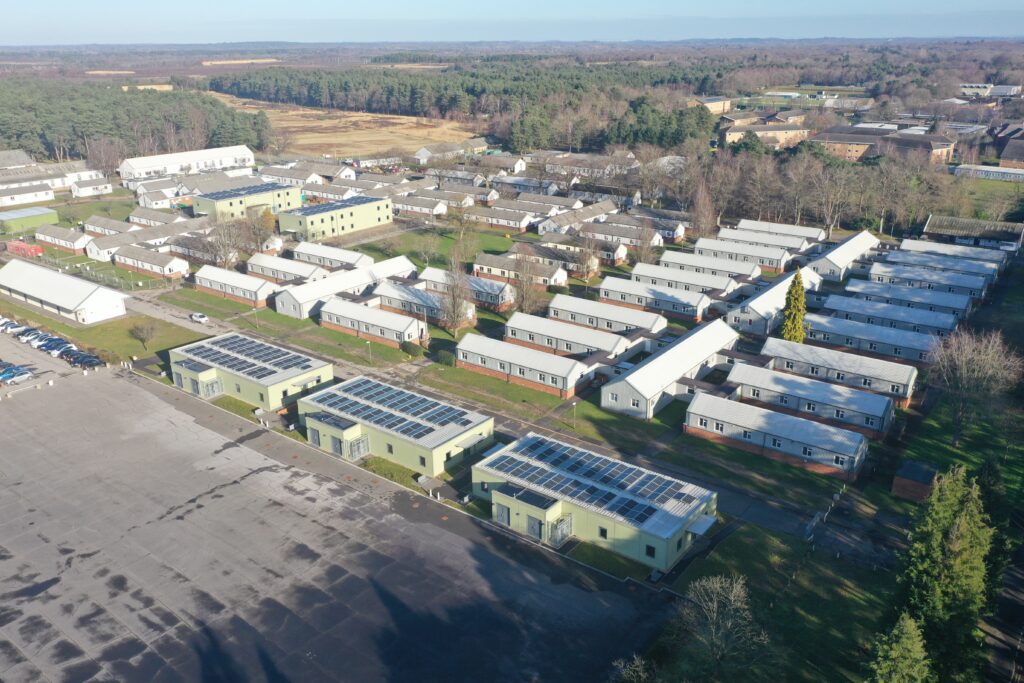
A key step on our path to meeting the UK Government’s net-zero 2050 target is decarbonizing the built environment, including the training and accommodation facilities used by military personnel across the Defence Training Estate (DTE). Working with our partners Landmarc Support Services and modular construction specialist Reds10, we are delivering the award-winning Net-Zero Carbon Accommodation Programme (NetCAP), which has recently introduced the DTE’s first double-storey carbon negative buildings featuring rainwater harvesting capabilities.
About NetCAP
NetCAP is part of a multi-million pound investment to transform the lived experience for our Armed Forces. The programme is set to deliver over 70 carbon efficient buildings, which will mean more than 3,900 new bed spaces, across the DTE. The accommodation provides beds, showers and drying rooms all in one modern complex, removing the need for troops to move around different buildings.
Driving down carbon emissions
NetCAP has delivered continuous improvements on the accommodation design, thanks to data from SMART technology and lessons learned being fed directly back into the programme. So far, the programme has delivered the DTE’s first carbon negative accommodation with an Energy Performance Certificate (EPC) rating of -5, followed by further blocks achieving EPC ratings of -7,-9 and -10. This means the buildings are capable of generating power for the site, reducing electricity costs.

Boosting environmental performance
A key aim of NetCAP has been to boost environmental performance not only in construction, but for the ongoing lifecycle of the buildings. A variety of innovative green approaches have been used to ensure long-term sustainability as well as operational efficiency. These include rooftop solar panels, air source heat pumps and a heat recovery system in the buildings’ showers and drying rooms.
The most recent development in this area is the implementation of a rainwater harvesting system, whereby rainwater is captured from the roof using the guttering system, before being filtered and directed into a rainwater harvesting tank that pumps the water back into the building for use. This greatly reduces water consumption within the buildings and uses the wet British weather to our advantage.

The programme is currently set to deliver more of the latest double-storey facilities at several locations. In addition, continuing the trend of innovation and improvement that has been central throughout NetCAP, we are looking forward to installing the DTE’s first carbon negative Combined Joint Operations Centre (CJOC) at Wretham Camp in Suffolk at the end of March.
1 comment
Comment by JB posted on
Good to see energy efficient buildings but the world green building Council defines a net zero building as " if 100% of energy demand is met by on-site renewable energy, it can be called a net zero energy building" as these buildings do not have power storage i understand the solar panels on the roof provide energy to go elsewhere and when energy is required at night this is drawn from the grid. This doesn't sound "net zero"?